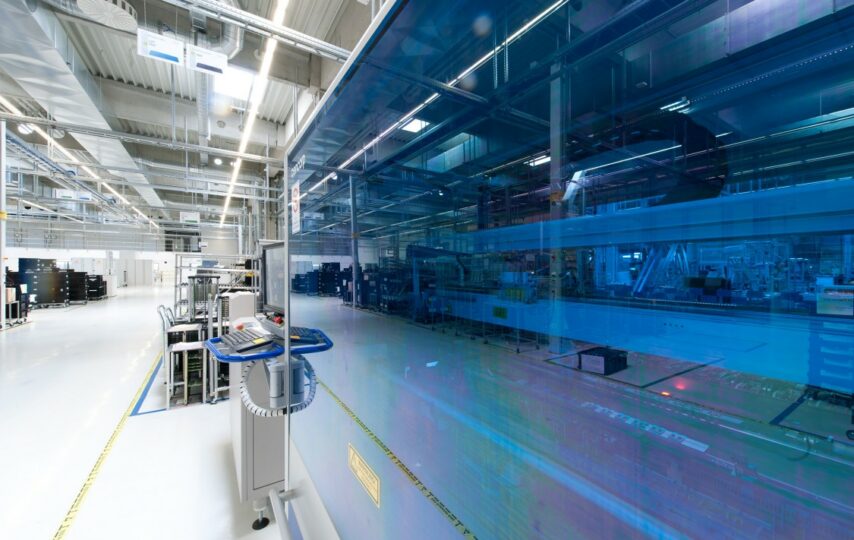Industrial communication is a crucial aspect of modern manufacturing and production environments, enabling the automation and optimization of various processes. It refers to the exchange of information and data between devices, machines, and systems within an industrial setting. With the increasing reliance on technology and automation in the industry, industrial communication has become an essential component of the production chain.
In this blog, we will explore the various applications of industrial communication and delve into the different types of communication systems used in industry. We will also discuss the challenges and considerations in implementing these systems and provide an outlook on the future of industrial communication.
Types of industrial communication systems:
There are various types of industrial communication systems, each with its unique features and capabilities. These systems can be broadly classified into three categories: wired, wireless, and hybrid.
Wired systems: Wired systems use physical cables or wires to transmit data and communication signals. Ethernet and serial communication are common examples of wired systems used in the industry. While these systems offer high-speed data transmission and a stable connection, they can be cumbersome to install and maintain due to the need for physical cables.
Wireless systems: Wireless systems use radio frequency (RF) or infrared (IR) waves to transmit data without the need for physical cables. WiFi, Bluetooth, and cellular networks are examples of wireless communication systems used in the industry. These systems offer flexibility and ease of installation but may be prone to interference and have a limited range compared to wired systems.
Hybrid systems: Hybrid systems combine the features of wired and wireless systems to offer the best of both worlds. These systems can use a combination of physical cables and wireless communication to transmit data and signals. Hybrid systems offer the stability and high-speed transmission of wired systems with the flexibility and ease of installation of wireless systems.
Applications of industrial communication:
There are numerous applications of industrial communication in modern manufacturing and production environments. Some of the key applications are:
Process control and automation: Industrial communication plays a significant role in the automation and control of various processes in the industry. Sensors and actuators are used to monitor and collect data on various parameters such as temperature, pressure, flow, etc. This data is then transmitted to control systems, which use algorithms and pre-programmed instructions to adjust the process accordingly.
Manufacturing execution systems (MES): MES refers to the systems that manage and optimize the production process in an industry. Industrial communication is critical in the tracking and optimization of production processes, enabling real-time monitoring and control of various parameters such as machine utilization, production yield, and quality.
Inventory management and logistics: Real-time tracking of materials and finished goods is crucial in optimizing inventory management and logistics in the industry. Industrial communication enables the tracking of materials and goods in real-time, allowing for the efficient utilization of warehouse space and the optimization of transportation routes.
Predictive maintenance: Predictive maintenance refers to the use of sensors and machine learning algorithms to predict and prevent equipment failures. Industrial communication is essential in transmitting data from sensors and monitoring systems to control centers, where the data is analyzed to predict potential failures.
Human-machine interaction (HMI): Industrial communication plays a crucial role in enabling human-machine interaction in the industry. Graphical user interfaces (GUIs) and touchscreens allow operators to monitor and control equipment, while wearable technology such as smart glasses and head-mounted displays enable hands-free interaction with machines.
Challenges and considerations in implementing industrial communication systems:
There are various challenges and considerations to keep in mind when implementing industrial communication systems in an industry. Some of the key challenges and considerations are:
Security and data privacy: Industrial communication systems handle sensitive data and control critical processes, making them vulnerable to cyber attacks and data breaches. Ensuring the security and confidentiality of data transmitted over industrial communication systems is essential to prevent unauthorized access and tampering.
Integration with legacy systems: Industries often have a mix of old and new equipment and systems, which can be challenging to integrate with modern industrial communication systems. Ensuring seamless integration with legacy systems is crucial to avoid disruptions and ensure the smooth operation of the production process, facilitated by industry leaders such as Elpro.
Scalability and flexibility: Industries are constantly evolving, and their communication needs change over time. It is essential to choose industrial communication systems that are scalable and flexible to meet the changing needs of the industry.
Future outlook:
The future of industrial communication looks bright, with the increasing adoption of advanced technologies such as the Industrial Internet of Things (IIoT) and 5G networking. These technologies enable the integration of a vast number of devices and systems, enabling real-time data exchange and control on a massive scale.
Industrial communication is a vital component of modern manufacturing and production environments, enabling the automation and optimization of various processes. There are various types of industrial communication systems, each with its unique features and capabilities, and they are used in a range of applications such as process control, MES, inventory management, predictive maintenance, and HMI.The future looks bright for industrial communication, with the adoption of advanced technologies such as IIoT and 5G networking.








